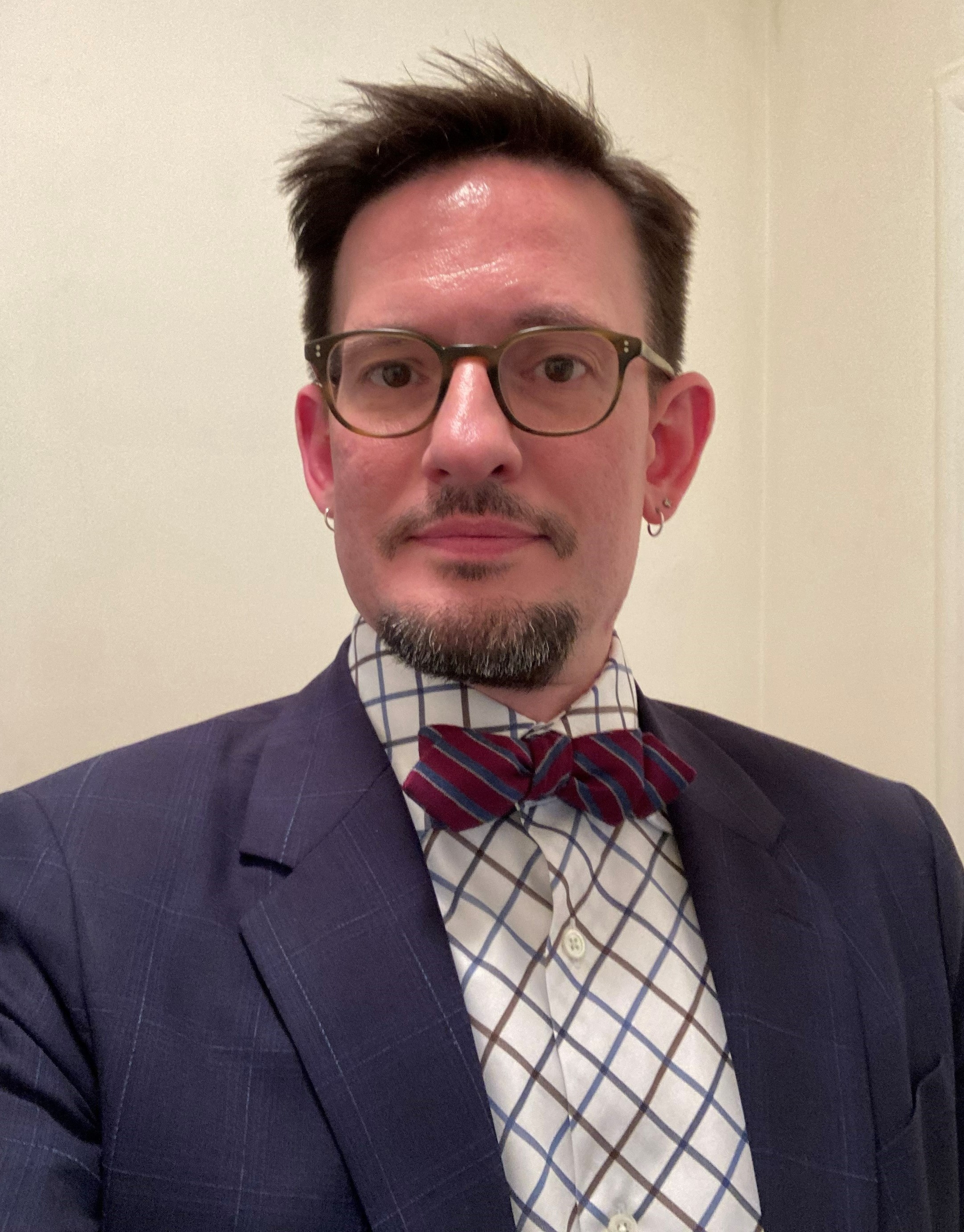
Academic Area
School
Andrew H. Weaver (Ph.D., M.Phil., Yale University; B.Mus., Rice University), ordinary professor and head of musicology. A specialist in music of the seventeenth and nineteenth centuries, particularly in Austria, Germany, and Italy, he has also published on music of the Renaissance. Specific research interests include sacred music, court patronage (especially the Habsburgs), music and politics (with a focus on diplomacy), monarchical representation, early modern print culture, seventeenth-century Italian opera, the Romantic Lied and song cycle (especially Schumann), and the German orchestral tradition (especially Mendelssohn and Richard Strauss). Undergirding all of his research is a concern with musical meaning; regardless of the topic, he engages the music directly, using a variety of methodologies to open works up hermeneutically and offer scholars, performers, and listeners a new understanding of both familiar and unfamiliar repertoires. His approaches have included placing music into its political, cultural, liturgical, and/or aesthetic contexts, performing close analyses of music and text, exploring intertextualities among artworks of varying media, and adapting contemporary literary theory to music.
Prof. Weaver is the author of Narrative and Robert Schumann's Songs: A New Approach to the Romantic Lied (University of Rochester Press, 2024), for which he received a grant from the Deutscher Akademischer Austauschdienst to do research in Germany, and Sacred Music as Public Image for Holy Roman Emperor Ferdinand III: Representing the Counter-Reformation Monarch at the End of the Thirty Years' War (Ashgate, 2012). He is also editor of A Companion to Music at the Habsburg Courts in the Sixteenth and Seventeenth Centuries (Brill, 2021) and co-editor (with Daniel Abraham and Catholic University alumna Alicia Kopfstein-Penk) of Leonard Bernstein and Washington, DC: Works, Politics, Performances (University of Rochester Press, 2020). He has edited scholarly editions of seventeenth-century music, including Motets by Emperor Ferdinand III and Other Musicians from the Habsburg Court, 1637–1657, Collegium Musicum: Yale University, second series 18 (A-R Editions, 2012); Giovanni Felice Sances, Motetti a 2, 3, 4, e cinque voci (1642), Recent Researches in the Music of the Baroque Era 148 (A-R Editions, 2008); and works by Antonio Bertali, Giovanni Valentini, and Pietro Verdina in the Web Library of Seventeenth-Century Music. His publications also include articles in the Journal of Musicology, Journal of the Royal Musical Association, Journal of Musicological Research, Music & Letters, Journal of Seventeenth-Century Music, Journal of the American Viola Society, Schütz-Jahrbuch, Early Music, and Nineteenth-Century Music Review, in addition to a number of book chapters, encyclopedia entries, and reviews. His current project, for which he received the Claude V. Palisca Fellowship in Musicology from the Renaissance Society of America to do research in Europe and the Martha Goldsworthy Arnold Fellowship to pursue research at the Riemenschneider Bach Institute at Baldwin Wallace University, is an exploration of the diplomatic function of musical sources in the sixteenth and seventeenth centuries.
Prof. Weaver is a frequent presenter at scholarly conferences in both the US and abroad. Conferences in America have included annual meetings of the American Musicological Society; meetings of the Southwest, New England, Midwest, and Capital Chapters of the AMS; and meetings of other academic societies such as the Society for Seventeenth-Century Music and the Renaissance Society of America. International conferences have included the Annual International Medieval and Renaissance Music Conference (held in Munich), the Biennial International Conference on Baroque Music (held at the Universität Mozarteum in Salzburg), the biannual meeting of Antiquae Musicae Italicae Studiosi (held at the Catholic University of Milan), “Sacred Music in the Habsburg Empire 1619–1740 and Its Contexts” (held at the University of Utrecht), and “Strauss Among the Scholars: An International Conference” (held at Oxford University). He has also recorded Podcast lectures (“eInsights”) for the Washington National Opera.
Prof. Weaver has served as secretary of the Society for Seventeenth-Century Music, as a member of the Council of the American Musicological Society, and as chair of the AMS Capital Chapter. He sits on the editorial board of the Web Library of Seventeenth-Century Music and previously served as editor of the AMS Newsletter.
Prof. Weaver's graduate-level courses have included Music in the Renaissance, Music in the Baroque, Music in the Classical Period, Music in the Romantic Period, Music since 1900, History of Opera, History of Sacred Music, Research Methodology, and special topics courses on Richard Strauss and on Monteverdi’s L’incoronazione di Poppea, the latter of which was fully integrated with a student production of the opera that he produced. He has also taught doctoral seminars on musical diplomacy, seventeenth-century sacred music, and the Romantic Lied and song cycle. With art historian Nora Heimann, he co-created and co-taught an interdisciplinary undergraduate honors course titled “The Mortal and Divine in Art and Music: Catholic Inspiration across the Ages,” and he created an undergraduate seminar on music and society in eighteenth-century England for the Oxford Study Abroad Program. In recognition of his innovative course and curricular development, in 2012 he received The Catholic University of America Provost’s Award for Advancement of Teaching.
With an undergraduate degree in viola performance, Prof. Weaver continues to be active as a chamber music and orchestral musician in the DC area.
